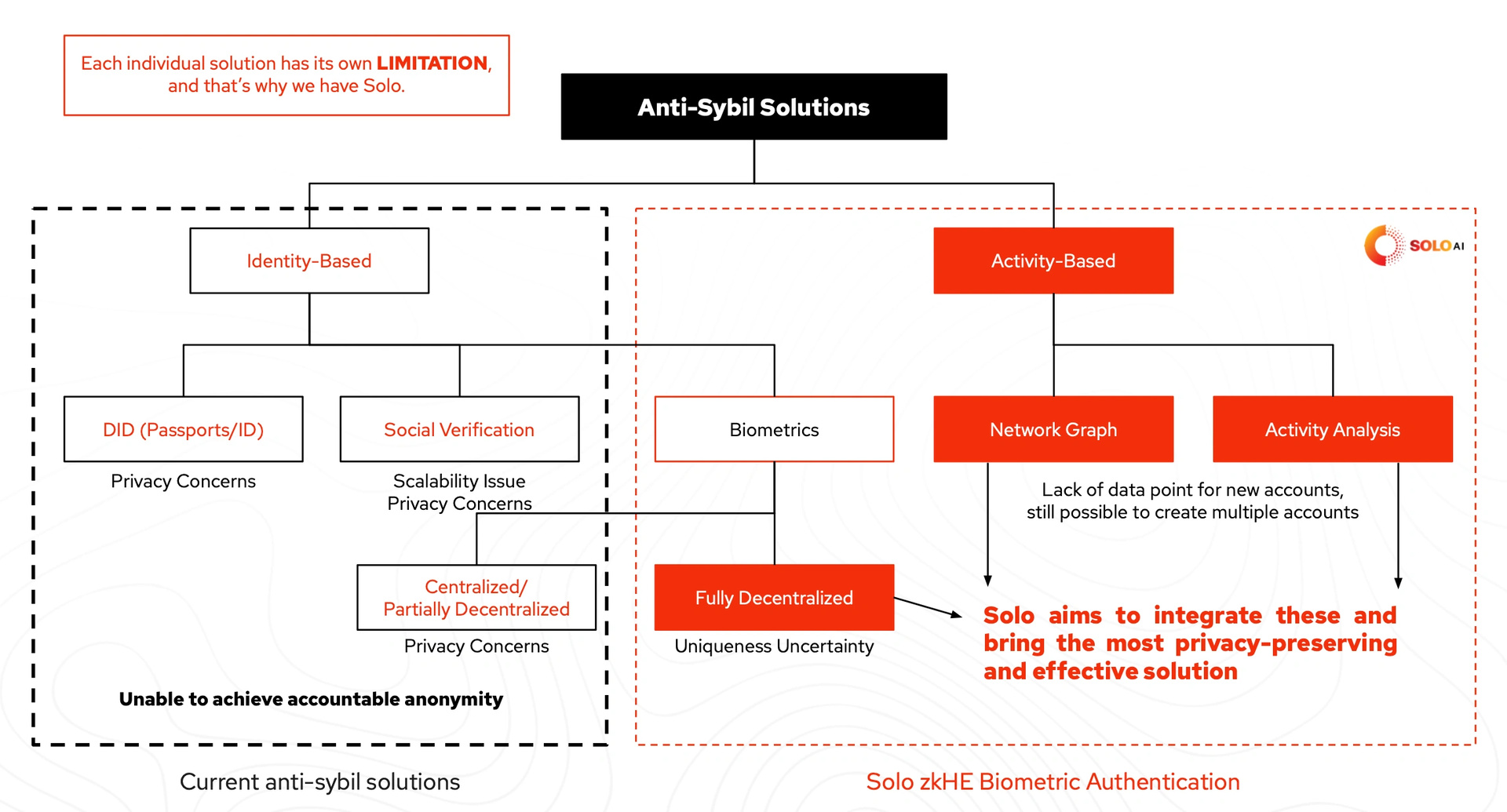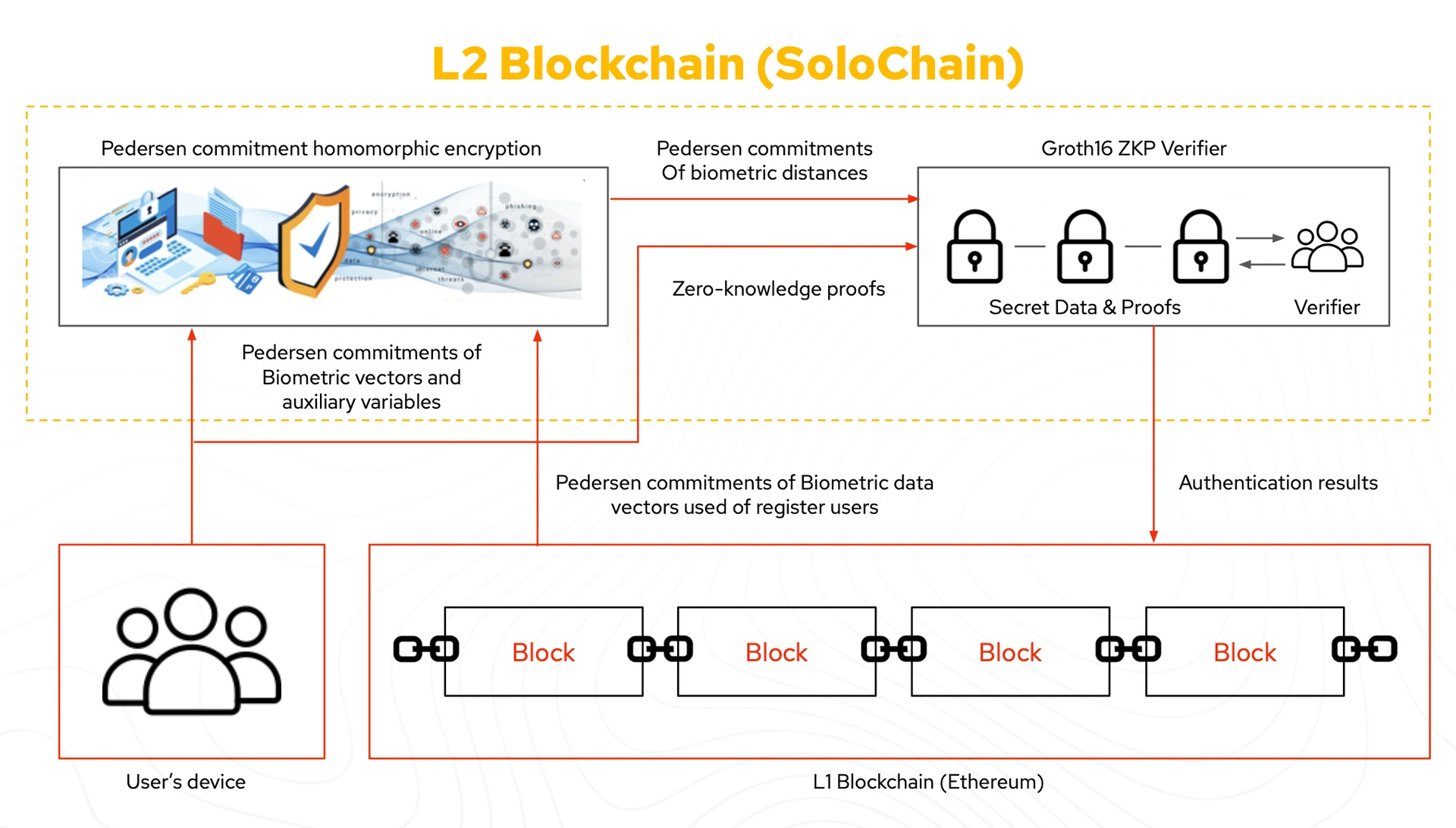읽기
편집
역사
알림
공유
Solo
Solo seeks to enhance Sybil resistance by continuously verifying that users are real humans during interactions with decentralized applications (dApps). This method intends to eliminate bot interference and AI contamination, aiming to improve the integrity of digital interactions.[1]
Overview
Solo aims to improve Sybil resistance through continuous, decentralized biometric verification. Utilizing a One Person One Account (1P1A) framework, it seeks to ensure genuine user engagement and minimize data exposure.
Solo intends to eliminate bot interference and AI contamination by verifying real humans during interactions with decentralized applications (dApps) through a zkHE biometric system, balancing privacy and accuracy.
For users, Solo offers seamless verification, enhanced privacy, and accountable anonymity. For projects, it aims to prevent bots and fake accounts, ensure quality data, and provide continuous verification during dApp usage.[1]
Continuous Verification
Solo’s continuous verification system aims to ensure that dApp users are real by requiring periodic re-verification and automatic logouts. It supports all mobile devices and seeks to avoid hardware limitations such as iris scanning.
For Web3 gaming, the system is intended to prevent cheating and support fair play. In data labeling, it aims to confirm that tasks are completed by humans, thereby maintaining the integrity of AI models. [1]
Products
SoloChain
SoloChain is a Layer-2 solution that aims to enhance privacy by using Pedersen commitment-based homomorphic encryption and Groth 16 zero-knowledge proofs. It is designed to manage and verify biometric data securely, including biometric distances and vectors. SoloChain operates on top of a Layer-1 blockchain like Ethereum, seeking to improve privacy and efficiency in handling sensitive data and proofs.[1]
Architecture
ZKHE Verification
Solo's platform relies on a zkHE verification architecture, supported by SoloChain, a privacy-focused Layer-2 solution. This system uses Pedersen Commitment Homomorphic Encryption, zero-knowledge proofs, and AI analysis to enable continuous verification of real users on any mobile device, aiming to balance scalability with privacy.[1]
Groth 616 zk-SNARK ZKP
Groth 16 zk-SNARK ZKP aims to verify blockchain transactions while keeping user data private. It uses recursive ZKP, combining Pedersen commitment-based homomorphic encryption with Groth 16 zk-SNARK, to minimize blockchain overhead during encrypted computations. This approach seeks to maintain data privacy and confirm computation integrity without disclosing details.[1]
Pedersen Commitment-Based Homomorphic Encryption
Pedersen Commitment-based homomorphic encryption aims to ensure data confidentiality by keeping biometric data encrypted throughout verification, thus protecting personal information during computations. It also seeks to reduce computational demands off-chain by normalizing biometric data formats, which simplifies ZKP circuit designs.[1]
FIDO
FIDO is an international standard for biometric verification and cryptographic key management. It aims to facilitate passwordless authentication by using biometric and cryptographic methods instead of traditional passwords.[1]
Team
- Edison Siu: CEO
- Prof. Stephen Wang: zk-SNARK and Cryptography Researcher
- Prof. Sissi Wu: AI and Data Science Researcher[1]
Solo
참고 문헌.
[1]





